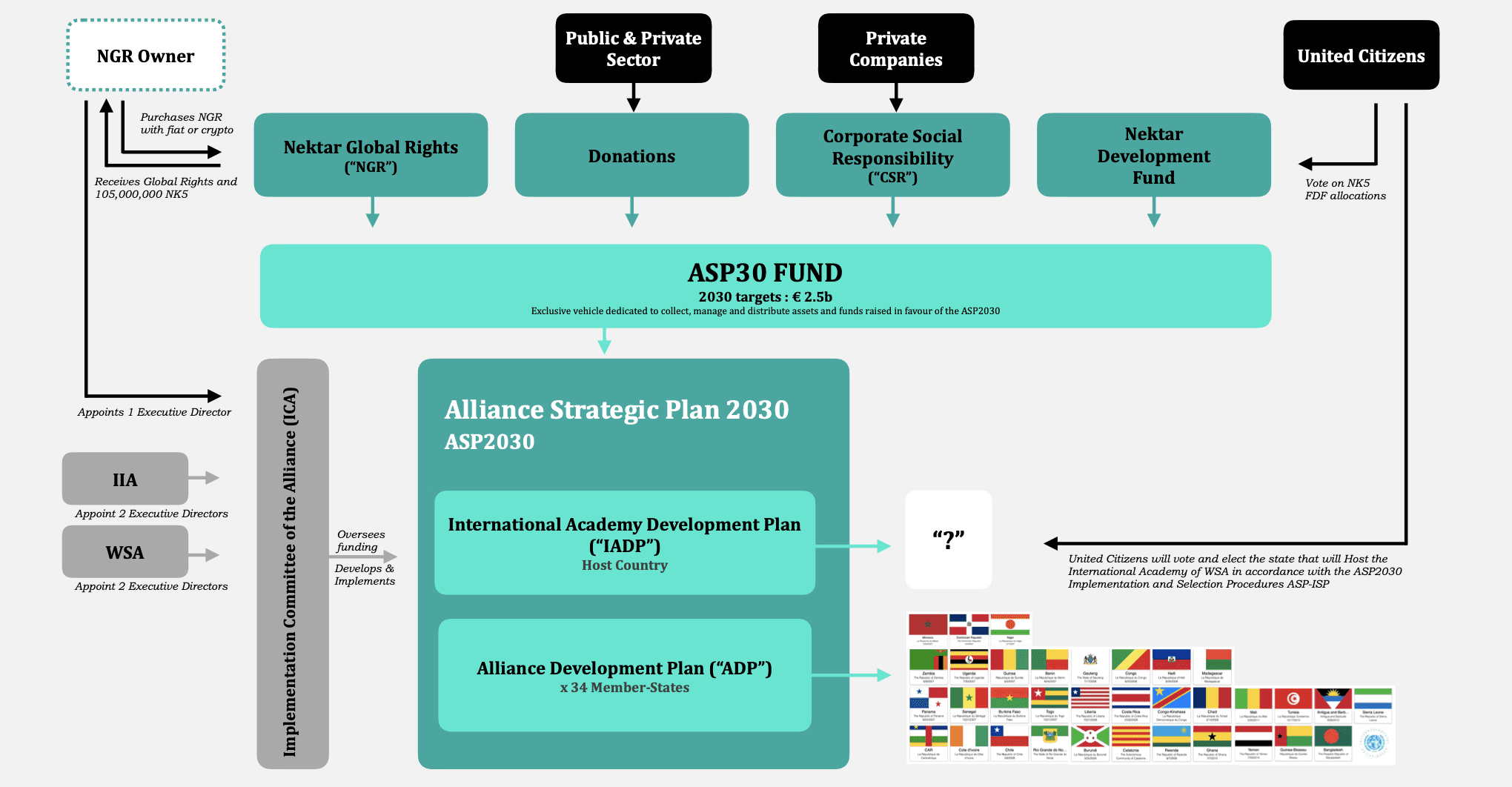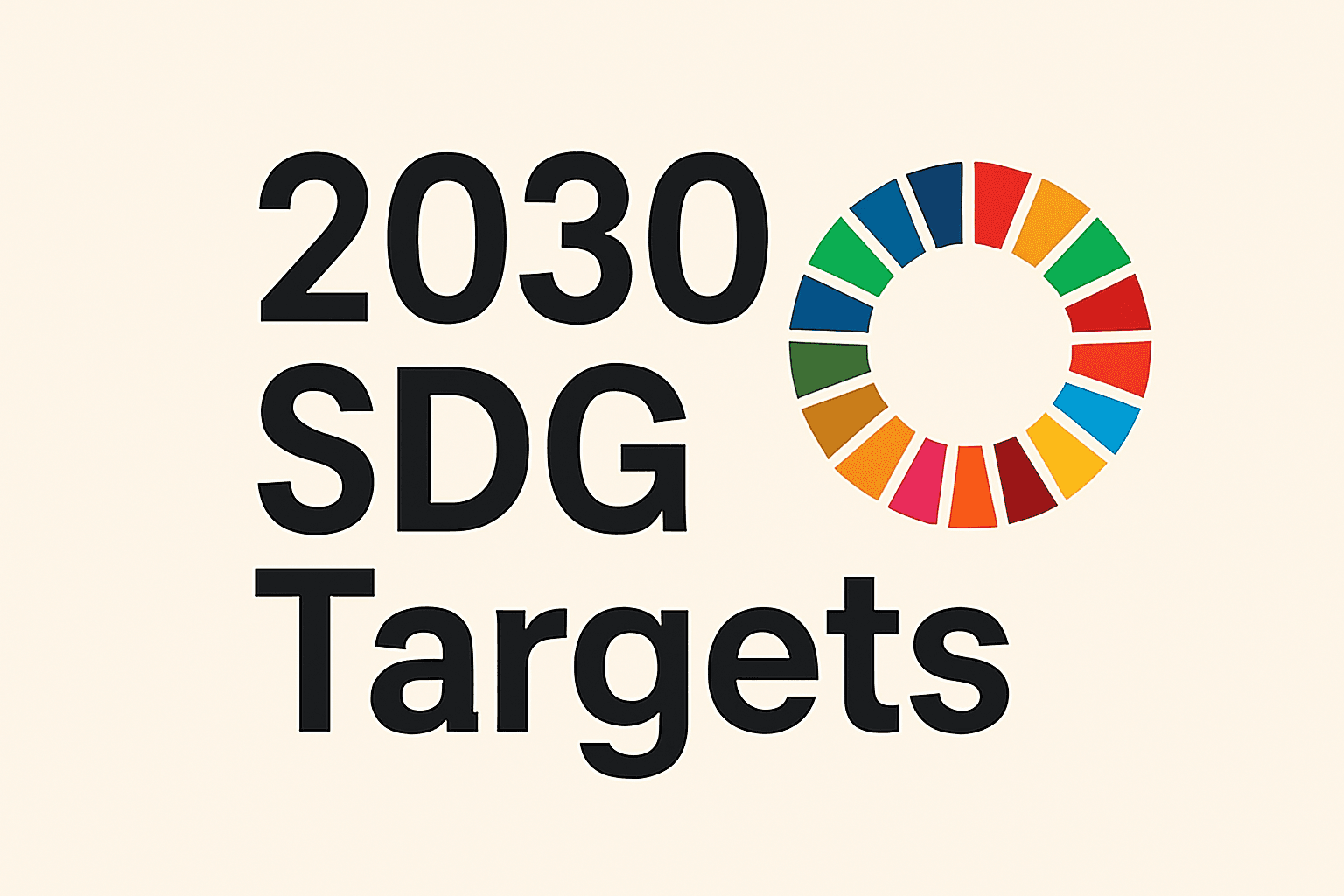Aug 14, 2025
The ASP2030
A Strategic Roadmap for the Future of WSA
5 min.
Overview
The Alliance Strategic Plan for the 2024-2030 period (ASP2030) is a defining moment for Member-States: a chance to strengthen the global legitimacy of WSA, to build world-class sports infrastructure, and to demonstrate commitment to youth, education, and sustainable development.
On the 22nd day of March, 2022, WSA entrusted the International Innovation Agency (IIA) with an exclusive restructuring mandate. This mandate lead to the creation of the ASP2030, a sustainable socio-economic model and a financial structure and mechanism for WSA to become financially independent and fully operational. It also called for the appointment of the IIA as a specialized agency of WSA and its transition into an international financial institution adapted to a new era, answering the call and the needs of Member-States.
With the Restructuring of WSA underway, the Restructuring Board and Transition Committee introduced the ASP2030 Implementation and Selection Procedures (ASP-ISP)—a clear, transparent, and ambitious framework to guide the implementation of Academies and the selection of the Host Country for the International Academy.
The ASP-ISP was designed with a dual mission:
Prepare for the implementation of Academies in the territories of Member-States.
Call for a vote to select the Host Country of the International Academy.
Academies
WSA Academies are facilities developed from the ground up on land provided at no cost by Member-States. They are scheduled to launch over a 5-year build-up phase, during which strategic partnerships with clubs, federations, sports movements, and corporate sponsors will be secured. Once operational, the network of Academies will become the primary talent gateway for every major sports organization, offering clubs and sports organizations unique access to the next generation of elite athletes, while ensuring student-athletes progress seamlessly from local development to international careers.
International Academy
The International Academy will directly oversee this network, introducing a breakthrough model that combines global competitions (Alliance Games), world-class facilities (Academies), fully funded scholarships (Scholarships), and structured talent and career management (Sports Agency)into a single ecosystem. This framework creates a sustainable, scalable, and self-funded ecosystem that advances both education and international sports development.
We anticipate for the International Academy to operate + 50 Academies and to have awarded +/- 25,000 scholarships by 2035 — making WSA Academies one of the largest education and sports talent agency in the world. By directly managing Academies across Member-States, the International Academy will build a unified global pipeline of talent. Student-athletes will move seamlessly through a system that combines training, competition, and long-term career management.
Implementation
Execution of the ASP2030 will be entrusted to the Implementation Committee of the Alliance (ICA), a specialized body comprised of executives appointed jointly by WSA and the IIA. The mandate of the ICA will cover:
Infrastructure & Procurement: Planning and construction of Academies.
Project & Financial Management: Overseeing budgets and accredited suppliers.
Human Resources: Staffing and capacity building.
Host Country Selection : Citizen Vote
Traditional sports movement organizations like FIFA and the Olympics request countries to bid and prove they have the financial and technical capacity to host their events. International organizations on their hand, take decisions behind closed-doors.
Because Academies are funded through donations and to ensure democratic legitimacy and worldwide engagement, it was decided that the Host Country of the International Academy be selected by the public. For the first time in history citizens can participate in the decision making of an international organization and shape the future of youth in their country.
The Host Country will be selected by the public through a decentralized electronic vote on the Nektar systems:
Any individual aged 18+ can vote.
Voting will take place in two rounds: the first to identify the finalists, and the second to select the Host Country by a simple majority.
Learn more about the steps to vote here.
Funding
WSA is the only Intergovernmental Organization to build infrastructures at no cost and no conditions to its Member-States and the only one to be actively involved in the sports movement as an event organizer, school and talent management agency.
The financing of the ASP2030 will come through the ASP2030 Fund (ASP30F), with contributions from private donors, companies, sponsorship's, naming rights, and an innovative ecosystem of Sustainable Development Goals Projects (SDG VENTURES) build on the NK5 Chain in partnership with Nektar, members of the United Citizens DAO and the IIA —not Member-States.
A unique and rare opportunity exists for any individual or organization to support youth and establish a legacy by acquiring the Nektar Global Rights (NGR), granting to the owner perpetual and tradeable rights to name all Academies, Games, Programs, and Scholarships of WSA.

A Milestone for WSA
The ASP2030 and its Implementation and Selection Procedures set a new standard for transparency, public participation, and strategic vision. For Ministers, this is a call to action: mobilize national institutions, engage with citizens and athletes during the WSA Host Country Campaign, call for your citizens to vote and seize the opportunity to host the International Academy and shape its legacy.
© 2025 World Sports Alliance IGO. All Rights Reserved
